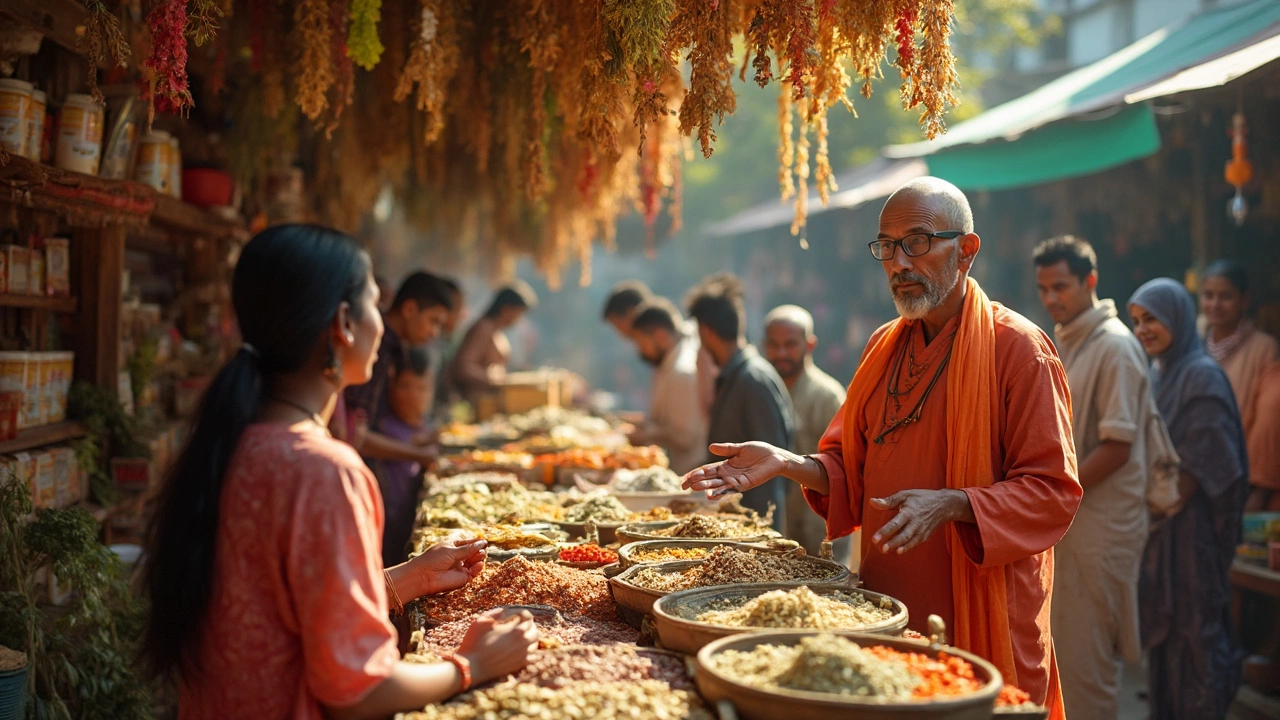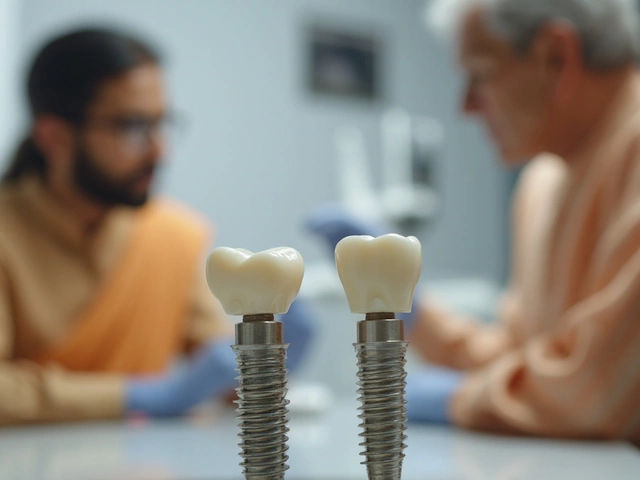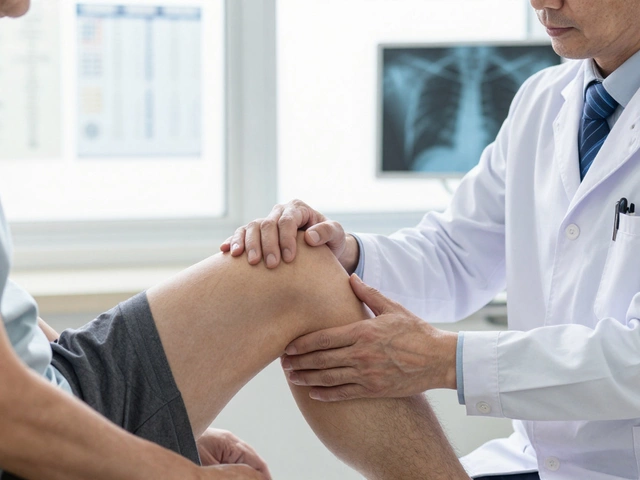If you've ever walked into a health store or scrolled online for herbal supplements, you know the shelves are packed. Turmeric, ashwagandha, ginseng—every bottle screams for your attention. But not all herbal companies play by the same rules, and picking the wrong one could mean wasting your money—or worse, harming your health.
The truth is, there's no universal "best" brand for everyone. What matters is how a company grows, processes, and tests its herbs. Some brands cut corners with fillers or questionable sourcing, while a handful go the extra mile with transparency and solid quality checks. Knowing what to look for makes a huge difference.
Let's cut the marketing noise and talk real stuff: what makes a herbal company trustworthy, which brands actually live up to the hype, and how the average shopper (like you and me) can spot the real deal in a world of shiny green labels. Ready to separate fact from clever advertising?
- What Makes an Herbal Company 'The Best'?
- Top Trusted Herbal Supplement Brands
- Red Flags: How to Avoid Dubious Companies
- Tips for Picking Safe, Effective Herbal Products
- Real-World Shopping: What to Check Before Buying
What Makes an Herbal Company 'The Best'?
Honestly, you can't call a company the best just because it has a cool logo or catchy tagline. The winners stand out for real, practical reasons that make their products not only safe but actually worth your money. So, what should you actually be looking out for?
First up, proper sourcing of herbs is huge. Good herbal companies are super picky about where their ingredients come from. They make sure plants are grown without sketchy pesticides, usually going for organic or wildcrafted sources. If you can't find any info about where a brand gets its herbs, that's a red flag.
Testing is a deal-breaker. The top brands don't just trust their suppliers—they test every batch for things like heavy metals, microbes, and pesticides. And they won't hide those results, either. Some even use third-party testing labs, so you're not just taking their word for it. If a company can't prove its product is pure and potent, keep moving.
Manufacturing also matters. Companies following Good Manufacturing Practices (GMP) guidelines keep things clean, consistent, and safe. GMP certification might sound boring, but it's your best bet against contamination and sloppy products.
Check out this quick table showing what sets strong companies apart from average ones:
| Key Factor | Why It Matters |
|---|---|
| Sourcing (Organic/Wildcrafted) | Reduces the risk of harsh chemicals, maximizes potency |
| Testing (In-house & 3rd-Party) | Reveals purity and ingredient accuracy; catches toxins before you do |
| Transparency | Brands that freely show test results or share sourcing info build trust |
| GMP Certification | Means products are made under strict safety rules |
| Clinical Research | Bonus points for companies backing products with studies |
Here's a tip: flip the bottle or visit a brand's website. Look for batch numbers, certificates, or a QR code linking to lab results. If the info isn't there, that's a sign you should pick another company.
One more thing—listen to customer reviews, but don't let them be your only guide. Quality, proof, and transparency matter more than hype when it comes to picking the best herbal company.
Top Trusted Herbal Supplement Brands
If you're serious about getting results from herbs, you want brands that care about quality, safety, and being open with customers. It’s easy to get lost in marketing, so here are some names that actually earn respect in the industry and among regular users.
- Gaia Herbs: Known for transparency. Every batch is traceable online through their 'Meet Your Herbs' system. You can check exactly where the herbs are grown. Gaia sticks to organic farming and tests every product for purity and potency.
- Himalaya Herbal Healthcare: A great choice if you want herbs based on real research. Himalaya does clinical studies for many of their products and holds certifications like ISO, GMP, and NSF. Their Ashwagandha and Liv.52 (for liver health) are especially popular.
- NOW Foods: You’ll spot them everywhere, and that’s because NOW Foods keeps quality high without charging a fortune. They run tests for over 1000 possible contaminants per product, which most brands don’t do. They’ve been around since the 1960s.
- Nature’s Way: Well-known and reliable, Nature’s Way earns its spot by verifying every ingredient and using third-party testing. They helped launch the first-ever project for herbs to get certified through Tru-ID, which fights false labeling.
- Organic India: Famous for Tulsi and other Ayurvedic herbs. Everything is grown organically and ethically sourced. They support small farmers in India and have Fairtrade and USDA Organic stamps.
When you see these names, you’re more likely to get supplements that work as promised—and skip unwanted surprises. But the most important thing? Always look for that best herbal company habit: third-party lab testing. If a brand talks openly about their test results, you’re usually in good hands.
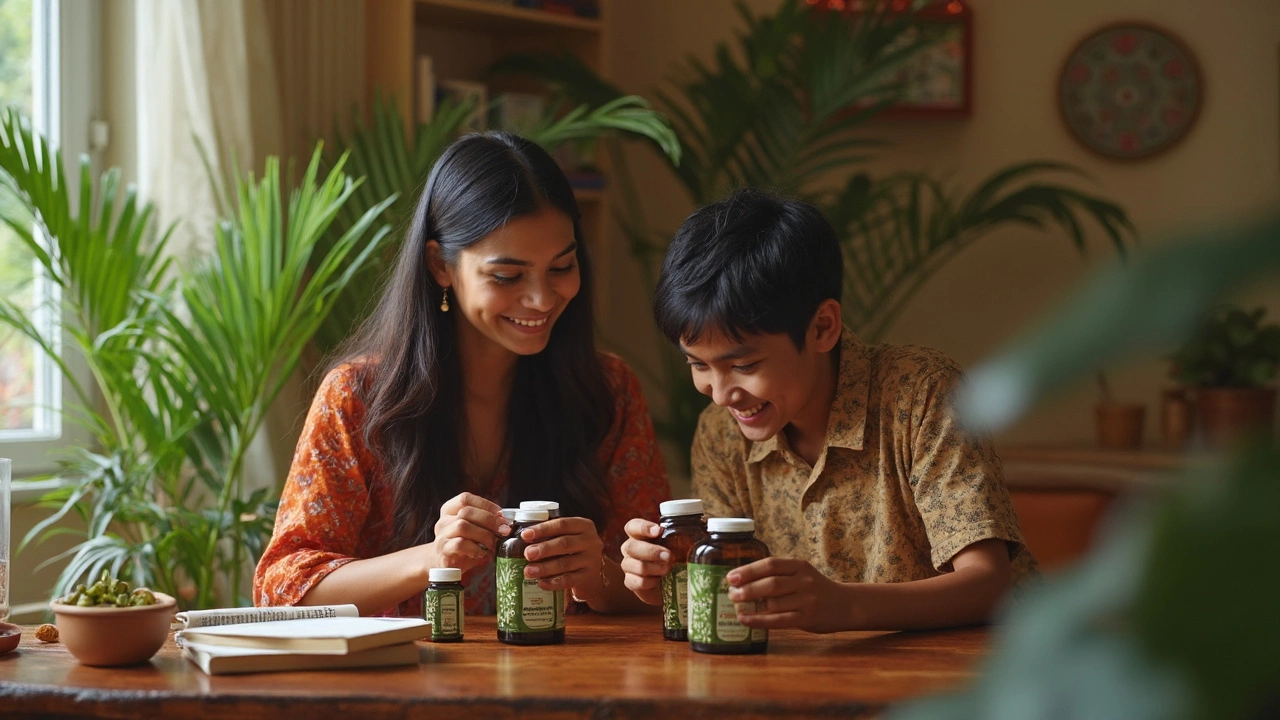
Red Flags: How to Avoid Dubious Companies
When you’re picking a best herbal company, you’ve got to keep your eyes peeled for some classic warning signs. Even if a brand looks flashy and has slick packaging, what’s inside the bottle matters way more than the label.
Here’s where a bunch of people trip up: not checking ingredients, skipping label details, and trusting “natural” claims that don’t mean squat without proof. Did you know that in the U.S., the FDA doesn’t actually regulate herbal supplements for safety or effectiveness before they hit shelves? That puts a lot of the responsibility on you as the shopper.
- No Third-Party Testing: Solid companies get their products verified by outside labs. If you can’t find third-party testing mentioned, walk away. Results should be recent and easy to check—look for certifications like NSF, USP, or ConsumerLab.
- Sketchy Health Claims: Watch out for brands promising miracle cures, or statements like “cures cancer” or “melts away fat overnight.” That’s not just suspicious, it’s illegal for companies to make these claims.
- Unclear Ingredient Sourcing: If the company doesn't share where their herbs are grown or harvested, there might be something to hide—like poor-quality or contaminated ingredients.
- Fake Reviews and No Contact Info: Hundreds of 5-star reviews, but no way to reach customer service or get real feedback? That’s a classic sign of a brand you can’t trust.
- Missing Transparency: Reliable companies show test results, explain their manufacturing process, and provide batch numbers. If you find confusing or missing info, it’s a red flag.
Check this table for some quick numbers showing why making the extra effort matters:
| Problem | What Studies Found |
|---|---|
| False Labeling | 1 out of 4 herbal supplements (25%) sold in the U.S. didn’t contain what the label claimed, according to a 2013 DNA-based study from the University of Guelph. |
| Adulterants/Fillers | 48% of herbal products tested in the same study included cheap fillers like wheat, rice, or soy, not listed on the label. |
| Heavy Metal Contamination | In 2022, ConsumerLab found 15% of imported Ayurvedic supplements tested had lead levels above safe limits. |
Your best bet? Slow down, read the fine print, and dig into a company's practices before trusting them with your health—and your wallet. The time you spend checking details could literally save you from buying useless or unsafe supplements.
Tips for Picking Safe, Effective Herbal Products
There's a huge difference between grabbing just any herbal supplement and picking something that actually helps. The market isn’t heavily regulated, so it pays to know what to look for.
- Check Certifications: Look for third-party seals like NSF, USP, or ConsumerLab. These mean the product was independently tested for quality and what's on the label matches what's in the bottle.
- Study the Ingredients List: The fewer unnecessary fillers, artificial flavors, or dyes, the better. If you can’t pronounce most of the ingredients, that's a red flag.
- Know the Source: Reputable companies proudly share where they get their herbs. Wildcrafted or organic herbs are often safer and cleaner, but always check how they’re processed too.
- Watch for Dosage and Transparency: Good brands give you exact dosages, and sometimes even back it up with lab results (certificates of analysis). Avoid formulas that just list a “proprietary blend.”
- Research Reputation: Google the brand. Check customer reviews and see if the company stands out (or, sadly, shows up in some recall news).
For context, check out this simple breakdown of things to spot on quality labels and why they matter:
| Label Feature | Why It’s Important |
|---|---|
| Third-party testing (USP/NSF/ConsumerLab) | Confirms product is safe, not contaminated, matches the label |
| Clear dosage (e.g., 500mg per capsule) | Lets you know exactly how much of an herb you’re getting each time |
| Country of origin or farm source | Tells you if it’s from a place with good standards (India, USA, Germany are known for reputable herbal companies) |
Here's one more solid tip: just because a bottle says "natural" doesn’t mean it’s automatically safe or effective. Stick with the best herbal company options that actually care about transparency and safety, not just pretty packaging. If in doubt, ask your pharmacist or doctor—they actually hear which brands are reliable from a safety standpoint.
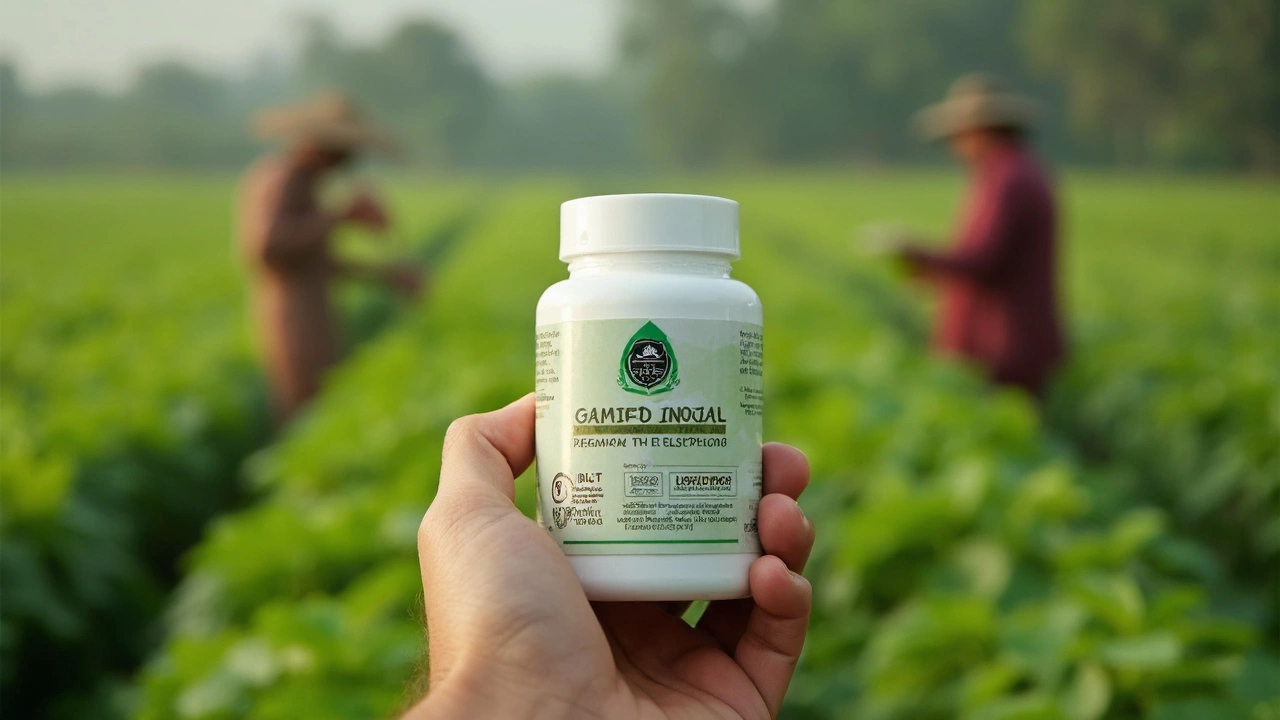
Real-World Shopping: What to Check Before Buying
Shopping for herbal supplements can feel confusing when every brand claims they’re the best. Don’t fall for good packaging alone. Here’s what you actually want to look for before buying anything, whether you’re online or in a store.
- Check for certifications: Look for third-party testing labels, like USP, NSF, or ConsumerLab. These mean an independent group has checked the supplement for purity and what’s actually in the bottle. Any real "best herbal company" won’t skip this step.
- Pay attention to ingredient lists. You want clear, recognizable herb names and minimal fillers or additives. If you see too many chemical-sounding extras, walk away.
- Scan for origin and sourcing information. A legit company tells you where ingredients come from—like “sustainably farmed in India” for ashwagandha. Vague phrases like "premium botanicals" can mean nothing.
- Look for clear serving sizes and dosage on the label. If you have no idea how much active ingredient you’re getting, you can’t use the product safely or get the right effect.
- Make sure there’s a way to reach actual customer support. Bad brands hide behind emails that never respond or don’t even list a phone number.
Sometimes, a good deal is just too good. In 2023, tests showed that 1 in 4 off-brand herbal supplements purchased online didn’t contain their claimed herb at effective strength. Spotting cheap fakes can protect your wallet and your health.
| Certification | What it Proves |
|---|---|
| USP Verified | Purity, strength, and ingredient quality confirmed |
| NSF Certified | Meets strict standards for safety and label accuracy |
| Non-GMO Project | Ingredients are not genetically modified |
| Organic (USDA) | Grown and processed without synthetic chemicals |
Pro tip: Take a photo of the label, then Google any words or company names you’re unsure about. People love to talk about sketchy products, and real problems usually pop up fast in reviews or forums.
If you’re serious about your health, spend two extra minutes double-checking those details. It beats wasting money on a bottle of nothing—or worse.
